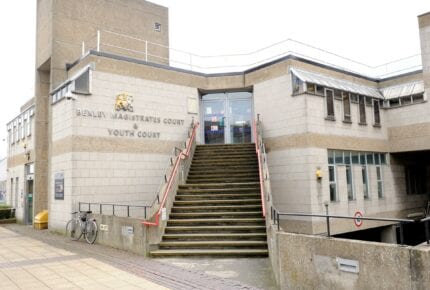

Bribery and corruption offences are serious matters in the UK, with over 100 investigations initiated by the Serious Fraud Office in recent years. If you find yourself facing such charges, obtain the guidance of an experienced solicitor as early as possible to protect your rights and build a robust defence strategy. This article aims to provide you with essential information you need in this challenging situation, answering questions like “Do I need a solicitor for bribery and corruption?” and “What are possible defences for bribery and corruption?” Additionally, we’ll explore common queries such as whether you might be granted bail and other critical considerations to help you navigate the legal process effectively.
Do I need a solicitor for bribery and corruption?
The Bribery Act 2010 is a comprehensive piece of legislation, covering different offences such as paying or receiving bribes, bribing foreign public officials, and even the failure by a commercial organisation to prevent bribery. A solicitor specialising in criminal law can provide invaluable guidance and support with these offences in several ways. Two of the core benefits are:
- Legal expertise: They can help you understand the specific charges brought against you and the potential consequences. A solicitor can interpret the law in the context of your situation, providing clarity and guidance on the best course of action.
- Investigation and evidence gathering: An experienced solicitor can assist in gathering relevant evidence, identifying any weaknesses in the prosecution’s case, and developing a robust defence strategy. They may also call upon forensic accountants or other experts to strengthen your case.
What are possible defences for bribery and corruption?
Possible defences that might be considered include:
- Lack of intent: For a bribery charge, intent plays a significant role. A possible defence could be to demonstrate that there was no intention to offer, promise, or give an advantage for the purposes of influencing another. If you can show that any perceived act of bribery was unintentional or misunderstood, this could form part of your defence.
- Lack of knowledge: In cases involving corporations or larger organisations, an individual may argue that they were unaware of any bribery or corrupt activities occurring within their company. This defence might be valid if you can establish that you did not have knowledge of the act and that it was not within your scope of responsibility.
- Duress or coercion: If you were forced or coerced into committing an act of bribery or corruption under threat or intimidation, this might be a viable defence. Proving that you acted under duress could mitigate the charges against you, though it requires substantial evidence of the threats and lack of reasonable escape.
- Entrapment: Entrapment occurs when an individual is induced or persuaded by police or other law enforcement officers to commit a crime they would not have otherwise engaged in. If you believe you were led into committing bribery under such circumstances, you may be able to use entrapment as a defence.
Will I get bail for bribery and corruption?
First and foremost, the court will evaluate the nature and seriousness of the alleged offence. Bribery and corruption charges are usually viewed seriously, especially if they involve significant sums of money or have far-reaching implications. This can affect whether the court perceives you as a flight risk.
Key considerations include:
- Risk of failing to appear: The court will consider whether you are likely to appear for your trial dates if granted bail. Factors influencing this include your personal circumstances, such as ties to the community, employment, family connections, and any history of failing to attend court.
- Interference with witnesses or evidence: The court will assess the likelihood of you interfering with witnesses or tampering with evidence. In complex financial crimes like bribery and corruption, this can be a significant concern.
- Public safety and reoffending: The potential risk to public safety and the likelihood of reoffending while on bail are also important factors. Although bribery and corruption may not pose a direct threat to the public, the court will still consider the wider impact on society.
Will I have to go to court if I’m arrested or charged for bribery and corruption?
Bribery and corruption are typically classed as indictable offences, which means they can be tried in the Crown Court. Such cases generally involve complex legal issues and significant potential penalties, including imprisonment, if convicted. For this reason, it is likely you will have to attend court at some point if charged.
Before any court proceedings occur, however, the legal process begins with an investigation. This may involve interviews with the police or other regulatory bodies. If there’s sufficient evidence to suggest you have committed an offence, the Crown Prosecution Service (CPS) may decide to charge you. Once charged, you might initially appear in a Magistrates’ Court, as most criminal cases commence there. Due to the serious nature of bribery and corruption charges, the case is likely to be transferred to the Crown Court for a full trial (if you plead not guilty).
All that said, there are instances where appearing in court might be avoided, largely depending on how the case is managed:
- Early legal advice: Engaging a criminal defence solicitor early could potentially influence the case’s progression. They may be able to negotiate with the prosecution to reduce charges or explore alternative resolutions that do not involve a court trial.
- Pleading guilty: If the evidence against you is strong and you decide to plead guilty, you will still need to attend court for sentencing. However, this can often avoid the need for a full trial, as the case will not proceed to that stage. Pleading guilty at an early stage may also result in a reduced sentence, as it demonstrates cooperation and remorse.
Will I go to jail if found guilty of bribery and corruption?
Sentences for bribery and corruption can range from fines to imprisonment depending on the specifics of the case. The Bribery Act 2010 is the primary legislation governing these offences in England and can carry significant penalties. For instance, individuals found guilty of an offence under the Bribery Act can face up to 10 years in prison. Not every conviction results automatically in a custodial sentence, however.
Several factors are considered by the court when deciding the appropriate penalty for bribery or corruption offences:
- Severity of the offence: The more serious the act of bribery or corruption, the higher the likelihood of a prison sentence. For example, offences involving large sums of money or affecting public services or trust may result in a harsher sentence.
- Role and conduct: Whether you were the mastermind or playing a peripheral role can influence the outcome. Leaders of such schemes are more likely to face imprisonment than minor participants.
- Impact on the victim: If the offence caused significant harm or had far-reaching detrimental effects, this might increase the likelihood of a custodial sentence.
Will I go to jail if it’s my first offence of bribery and corruption?
If you are convicted of bribery or corruption, the court will look at several factors to decide your sentence. These can include:
- The scale of the bribery or corruption: Courts look at how extensive the activity was, including the amount of money involved and the duration over which the offences occurred.
- The impact of the offence: Judges will consider the harm caused by the offence, such as the damage to public trust, financial losses, or harm to individuals or organisations. Offences that undermine institutions or involve significant financial or reputational damage are more likely to result in a custodial sentence.
- Aggravating factors: These can increase the likelihood of imprisonment and include offences involving large sums of money, abuse of a position of trust, or offences committed as part of organised criminal activity. Repeated or premeditated acts of bribery or corruption will also be treated more severely.
- Mitigating factors: Conversely, factors such as a lack of previous convictions, genuine remorse, cooperation with authorities, or an early guilty plea can reduce the severity of the sentence. In some cases, these factors may result in a non-custodial sentence, such as a fine or community order, particularly for first-time offenders involved in less serious offences.
Can I get Legal Aid for bribery and corruption?
Legal Aid is designed to help individuals who cannot afford legal representation to ensure that everyone has access to justice. Legal Aid for criminal cases, including charges of bribery and corruption, can be available under certain conditions. To determine your eligibility, two primary assessments are conducted: the means test and the interests of justice test.
In short, the means test assesses your financial situation, including your income, savings, and assets, to determine if you can afford legal representation. The interests of justice test evaluates the seriousness of the offence and whether it is in the public interest for you to have legal representation, particularly if there is a risk of imprisonment or complex legal issues. Bribery and corruption charges are serious offences, so they typically meet the interests of justice requirement.
If you qualify under both tests, you may be granted Legal Aid to cover your defence.
Where to get more help
At Stuart Miller Solicitors, we are committed to providing expert legal guidance and representation tailored to your unique situation. If you need professional advice or assistance, don’t hesitate to get in touch with us today for a free consultation.
OUR COMMITMENTS TO YOU:
-
Responsive
A legal expert will consult you within 24 hours of making an enquiry.
-
Empathetic
We will always treat you with trust, understanding and respect.
-
Specialised
Your case will be handled by an expert who specialises in your type of offence.
-
Proactive
We will take early action to end proceedings as soon as it is practically and legally possible to do so.
-
Engaged
You will be kept updated on your case at all times. We will provide a named contact available to answer your questions.
-
Caring
We understand this is a difficult and stressful time for you and your family. Our team will support you every step of the way.
-
Tenacious
We will never give up on your case. We fight tirelessly to get you the best possible outcome.

